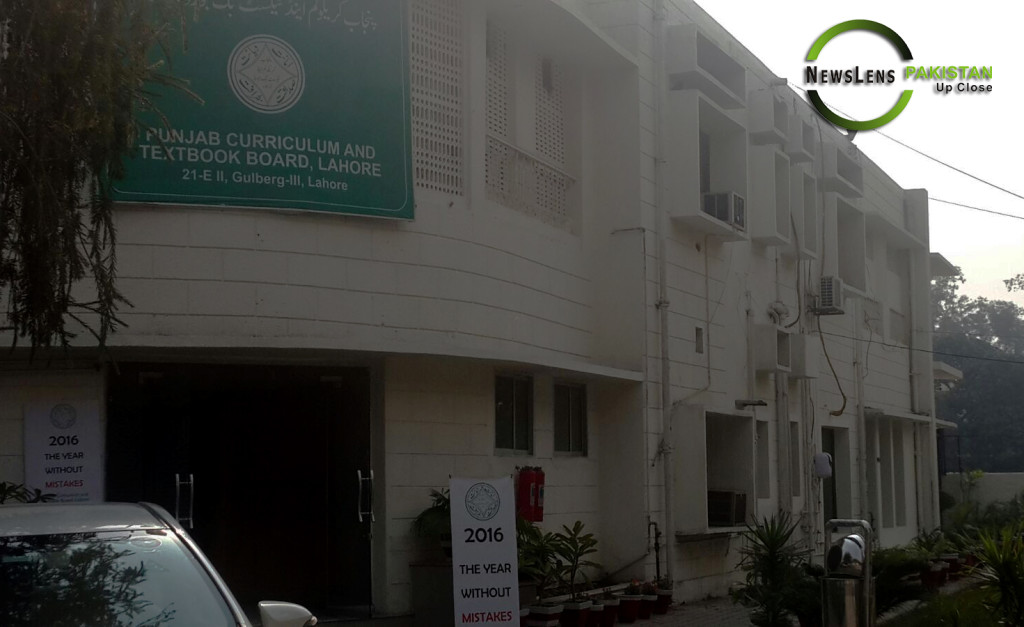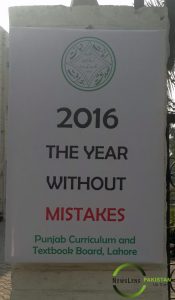Lahore: Ever since the birth of the National Action Plan (NAP), the civil society is persuading the governments in all the provinces to overhaul the school textbooks, believed to contain material laced with hatred against minorities, women, and religious denomination.
Pakistan’s education policy has been blamed for supporting a national narrative that encourages an exclusivist religious ideology.
Professor of History, Tahir Kamran at the Government College University Lahore explained this national narrative to News Lens Pakistan. He said ‘Urdu, Islam, and Hindu is the other’ were the three essential elements of this narrative. The state, Kamran told, reinterpreted Islam to develop an anti-West and anti-Hindu sentiments. “The policy makers incorporated this discourse into the textbooks with the result that we began feeding distorted facts to our children,” added Kamran.
“Our school books contain wrong information such as that Maulana Maududi, the founder of Jamaat-e-Islami, (JI) was the right-hand man of Quaid-e-Azam. The truth is that all the religious parties including JI were against the creation of Pakistan,” said Kamran.
Over the years, hostility against the minorities has risen manifolds in Pakistan. A mere announcement of blasphemy charges against the members of any minority group, by cleric of a mosque, could turn a crowd into a mob.
Experts blame this blind following of religious authorities followed by the absence of rational thinking on the education system that discourages dissenting voices and condemns questioning.
Kamran said, “We have been glorifying our past in the classrooms while resisting any conversation about the downfalls. In the process, we denied the children the right to self-analysis and critical thinking.”
“When we shun self-analysis, we resort to conspiracy theories. It is therefore that we put the blame of every wrong that Pakistan encounters either on the Hindus or Jews,” said Kamran.
Educationists are of the opinion that curricula and textbooks in Social Studies, English, Urdu and Civics from class 1 to class XII contribute in shaping a child’s value system and identities.
In a study carried out by Amir Riaz, a Research Scholar for Action Aid Pakistan and Jaag, (both are NGOs) the textbooks taught in Punjab contain material reinforcing that
• Muslims are the only perfect race.
• Non-Muslims have been a negative influence on Muslims.
• Some sects within Islam have strayed from the right path.
• War and the use of force are legitimate.
• Farmers and women are second-grade entities.
Amir Riaz told News Lens Pakistan that textbooks across Pakistan had promoted communal, sectarian and urban biases.
He added that the style and examples adopted to describe the village life created disdain against small towns and a penchant for moving into cities.
According to another research conducted by Sustainable Development Policy Institution, in spite of teaching Islamiat (Islamic Studies) as a compulsory subject, other disciplines such as Social Studies and English were also loaded with Islamic content.
The Islamization of the curricula began in the late 1970s under the military ruler General Ziaul Haq, who had ruled Pakistan for ten years.
Zia announced a National Education Policy and Implementation Program in 1979, which stated:
“The highest priority would be given to the revision of the curricula with a view to reorganizing the entire content around Islamic thought and giving education an ideological orientation so that Islamic ideology permeates the thinking of the young generation and helps them with the necessary conviction and ability to refashion society according to Islamic tenets.”
The constitutional experts considered this policy in complete negation to the Article 22 of the Constitution of Pakistan. Article 22 says:
“No person attending any education institution shall be required to receive religious instructions, or take part in any religious ceremony, or attend religious worship, if such instructions, ceremony or worship relates to a religion other than his own.”

When News Lens Pakistan met with the Managing Director of the Punjab Textbook Board, Nawazish Ali, in his office at Gulberg Lahore, he first drew the attention of News Lens Pakistan’s team to the changed nomenclature of the textbook board that now reads Punjab Curriculum and Textbook Board. This change, according to Ali, shows government’s resolve to take full ownership of the content and quality of the textbooks.

Previously a separate department called Curriculum Research and Development Wing was in-charge of writing, editing and proofreading the books. The textbook board was responsible for printing, pricing and maintaining the quality of the content.
Nawazish Ali agreed that the textbooks were full of factual errors. He said that in certain books derogative language had been used to describe urban women.
“Following the instruction given to us under the NAP we are preparing new syllabus from class 1 to VI. We have asked each stakeholder, such as women, minorities, children, teachers, and media to give their input on the type of contents for the new textbooks.” This collective effort would help us generate inclusive curricula accommodating the rights and dignity of each group in society, he added.
“As a stopgap arrangement, unless the new syllable is ready, we have introduced supplementary reading materials in schools from middle to higher secondary classes. The content of these texts have been developed with an aim to foster the spirit of inter-provincial and interfaith harmony in children,” said Ali.
The civil society considers the supplementary reading material a step in the right direction. Terrorism related topics cover a good part of the text.
However, a general feeling is that the quality of the content and ideas discussed lack sophistication.
Wajahat Masood, an eminent writer, human rights activist and columnist, does not see things changing with an overemphasis on terrorism in the textbooks.
He told News Lens Pakistan that when the Interior Minister of Pakistan, Chaudhry Nisar Ali Khan, could not differentiate between a terrorist and a criminal. When he is shy to take action against Maulana Abdul Aziz, the cleric of the Lal (Red) Mosque, who has been challenging the writ of the state, should we expect a miracle from textbooks?
“I do not think that the government will take up the task of cleansing textbooks of religious biases seriously. The real change will only come about when the existing national narrative is altered, and terrorists are held irrespective of their religious leanings,” said Masood.
He said, “For the proper implementation of NAP we need to treat, Dr Asim and Maulana Aziz on equal footing.”
Towards the end, Nawazish Ali gave a policy statement, though, saying that Islam and the ideology of Pakistan would remain the dominating features of the textbooks in Punjab.



